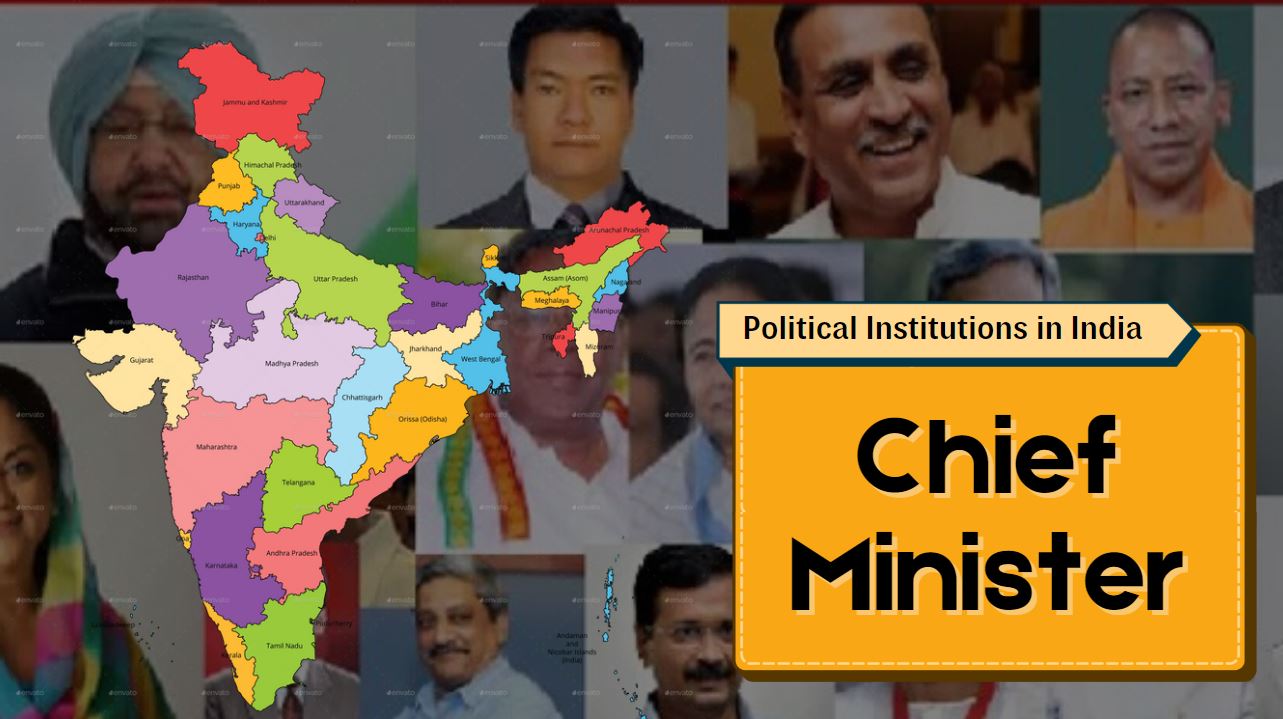Chief Minister in India – UGC-NTA NET Political Science
The Chief Minister (CM) holds a vital position in the Indian political landscape, acting as the head of the government in each state. This role encompasses various responsibilities, powers, and functions crucial for state governance.
Definition
The Chief Minister is the principal executive authority in a state. They lead the state’s government and are responsible for its administration. As the head of the executive branch, the CM plays role in shaping policies and governance.
Appointment
The Chief Minister is appointed by the Governor of the state. Typically, this appointment goes to the leader of the party or coalition that holds a majority in the state legislative assembly. The Governor’s choice reflects the political landscape of the assembly, ensuring that the CM has the support needed to govern effectively.
Tenure
A Chief Minister does not have a fixed term. They serve as long as they maintain the confidence of the legislative assembly. If the CM loses majority support, the Governor can remove them from office. This dynamic ensures that the CM remains accountable to the elected representatives.
Powers and Functions
The Chief Minister’s powers are broad and encompass various domains:
- Executive Powers:
- Appoints and dismisses ministers.
- Oversees the functioning of the state government.
- Ensures implementation of laws and policies.
- Legislative Powers:
- Summons and prorogues the state legislature.
- Can recommend dissolution of the legislative assembly.
- Plays a key role in formulating legislation.
- Financial Powers:
- Prepares and presents the state budget.
- Manages financial administration and resource allocation.
- Advisory Role:
- Advises the Governor on appointments and legislative matters.
- Consults with the council of ministers on policy decisions.
- Crisis Management:
- Maintains law and order within the state.
- Can recommend President’s Rule under Article 356 if necessary.
Council of Ministers
The Chief Minister leads the council of ministers, which is collectively responsible to the legislative assembly. This council plays important role in decision-making and governance. The CM ensures that ministerial actions align with the government’s policies and objectives.
Relationship with the Governor
The Chief Minister must maintain a cooperative relationship with the Governor. While the Governor acts on the advice of the CM and the council of ministers, there are exceptions. For instance, the Governor can act independently in certain constitutional matters.
Political Significance
The Chief Minister is a key political figure, influencing both state and national politics. They often serve as the leader of their party at the state level. Their decisions can impact electoral outcomes and party dynamics.
Notable Chief Ministers
Several Chief Ministers have left a lasting legacy in Indian politics. Examples include:
- Jawaharlal Nehru: Chief Minister of Uttar Pradesh before becoming India’s first Prime Minister.
- M. Karunanidhi: A prominent leader in Tamil Nadu known for his contributions to Dravidian politics.
- Sheila Dikshit: Served as Chief Minister of Delhi for three consecutive terms, focusing on urban development.
- Mamata Banerjee: The first female CM of West Bengal, known for her grassroots activism.
Constitutional Provisions
The role of the Chief Minister is governed by Articles 163 to 167 of the Constitution of India. Article 164 specifically establishes the council of ministers headed by the Chief Minister. These articles outline the powers, responsibilities, and framework for state governance.
Current Trends
Recent trends show an increasing role of Chief Ministers in national politics. The rise of regional parties has also influenced state governance. Chief Ministers are now more frequently seen as key players in national discussions and political strategies.
Challenges
Chief Ministers face several challenges in their roles:
- Balancing Interests: They must balance state interests with central government policies.
- Coalition Management: Managing coalition governments can be complex and requires negotiation skills.
- Public Expectations: CMs are expected to deliver on promises while addressing diverse public needs.


